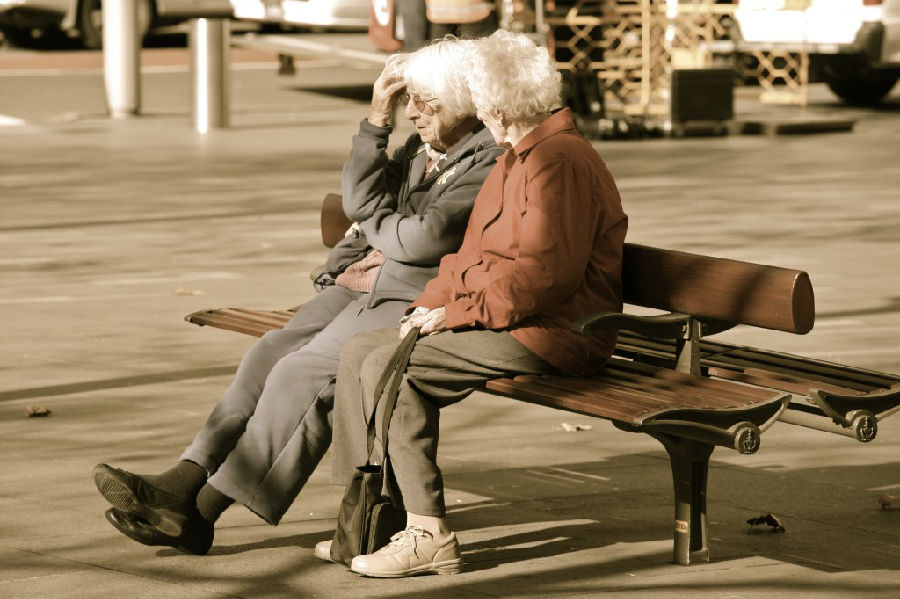MARIE ASHDOWN, 90, has lived in New York City for nearly 60 years, in an apartment on the east side of Manhattan.
90歲的瑪麗·阿什當(dāng)在紐約市住了近60年,她的公寓在曼哈頓東區(qū)。
New York has beaten down younger people than her,
紐約擊垮了年輕人,但沒有擊垮她,
but Ashdown, executive director of the Musicians Emergency Fund, loves city life.
但作為音樂家緊急基金會的常務(wù)董事,阿什當(dāng)非常喜歡城市生活。
"I have a fire in my belly," she says.
“我內(nèi)心充滿了激情,”她說。
"There’s not one minute of the day that I don’t learn."
“一天之中我沒有一刻不在學(xué)習(xí)。”
As a classical-music connoisseur, Ashdown organizes two concerts a year at Lincoln Center for the Performing Arts.
作為古典音樂鑒賞家,阿什當(dāng)每年都會在林肯藝術(shù)中心舉辦兩場音樂會。
When she’s not working, she takes weekend trips outside of the city, and spends her free time binding old books.
不工作的時候,她就會出城周末旅行,或者在空閑的時候用于裝訂舊書。
Like many New Yorkers several decades her junior, she often orders takeout rather than bother with cooking.
像許多比她小幾十歲的紐約年輕人一樣,她也經(jīng)常訂外賣而不是自己下廚。
"We have the best and worst here," says Ashdown.
“紐約這里有最美好的事物,也有最糟糕的,”阿什當(dāng)說。
"We learn to cope, live on the defensive and conquer fear."
“我們必須學(xué)會面對,學(xué)會處處防御,戰(zhàn)勝恐懼。”
She’s hardly the only senior who loves city living.
然而,她不是唯一一個熱愛城市生活的老年人。
In the U.S., 80% of people ages 65 and older are now living in metropolitan areas,
在美國,65歲及以上老年人有80%都住在大都市地區(qū),
and according to the World Health Organization,
而且,根據(jù)世界衛(wèi)生組織的統(tǒng)計,

by 2030, an estimated 60% of all people will live in cities—many of them over age 60.
到2030年,預(yù)計所有人口中城市人口的比例將達到60%——而其中很多人都是60歲以上的老人。
You may lose a little sidewalk speed and have to work harder to get up and down subway stairs,
走人行道時你可能就得放慢速度,上下地鐵的樓梯也會變得更費勁,
but cities increasingly rank high on both doctors’ and seniors’ lists of the best places to age gracefully.
然而,在醫(yī)生和老人列出的最適宜養(yǎng)老的地方清單中,城市的排名日益靠前。
Every year, the Milken Institute Center for the Future of Aging (CFA)
每年,米爾肯未來衰老研究中心(CFA)
ranks the best metropolitan places for successful aging, and most years, major cities sweep the top 10 spots.
都會對最適宜養(yǎng)老的大都市進行排名,大多數(shù)年份,核心大城市都包攬了前十。
No wonder: cities tend to have strong health systems,
也難怪,城市通常有強大的衛(wèi)生系統(tǒng),
opportunities for continued learning, widespread public transportation and an abundance of arts and culture.
持續(xù)學(xué)習(xí)的機會,發(fā)達的公共交通以及豐富的藝術(shù)和文化生活。
That’s not to say that people can’t feel isolated or lonely in cities, but you can get lonely in a country cottage too.
這并不是說在城市里人們就不會覺得孤單或孤獨,但住在鄉(xiāng)村小屋你就就不會孤獨了嗎?
In cities, the cure can be just outside your door.
但在城市里,感到孤單的時候出門你就可以得到治療。
"We all long to bump into each other," says Paul Irving, the chairman of the Milken Institute CFA.
“我們都渴望遇見,”米爾肯研究院CFA主席保羅歐文說。
"The ranges of places where this can happen in cities tend to create more options and opportunities.
“在城市中發(fā)生這種情況的地方很多,往往能夠創(chuàng)造更多的選擇和機會。”
It’s that aspect—the other-people aspect—that may be the particularly challenging for some,
對某些人來說,格外棘手的地方可能恰恰就在這里 - 就在這個“別人”身上,
especially as we age and families disperse.
特別是在我們逐漸老去,家人逐漸分散的時候。
But there are answers: a 2017 study in the journal Personal Relationships found that it can be friends, not family, who matter most.
但對此我們已經(jīng)有答案了:《個人關(guān)系》雜志2017年的一項研究發(fā)現(xiàn),最重要的可能是朋友而不是家人。
The study looked at 270,000 people in nearly 100 countries
該研究調(diào)查了來自近100個國家的27萬人,
and found that while both family and friends are associated with happiness and better health as people aged,
發(fā)現(xiàn)隨著年齡的增長,雖然家人和朋友都與幸福和健康有關(guān),
the health link remained only for people with strong friendships.
但似乎只有那些有著深厚友誼的人之間才會維持健康的關(guān)聯(lián)。



